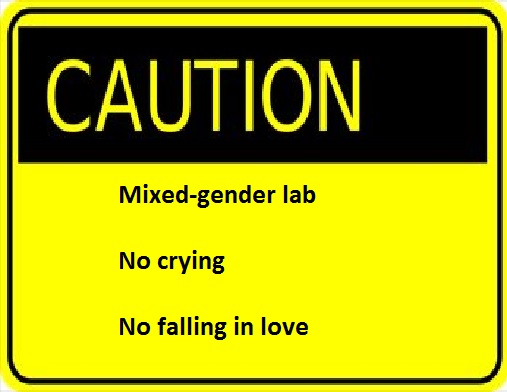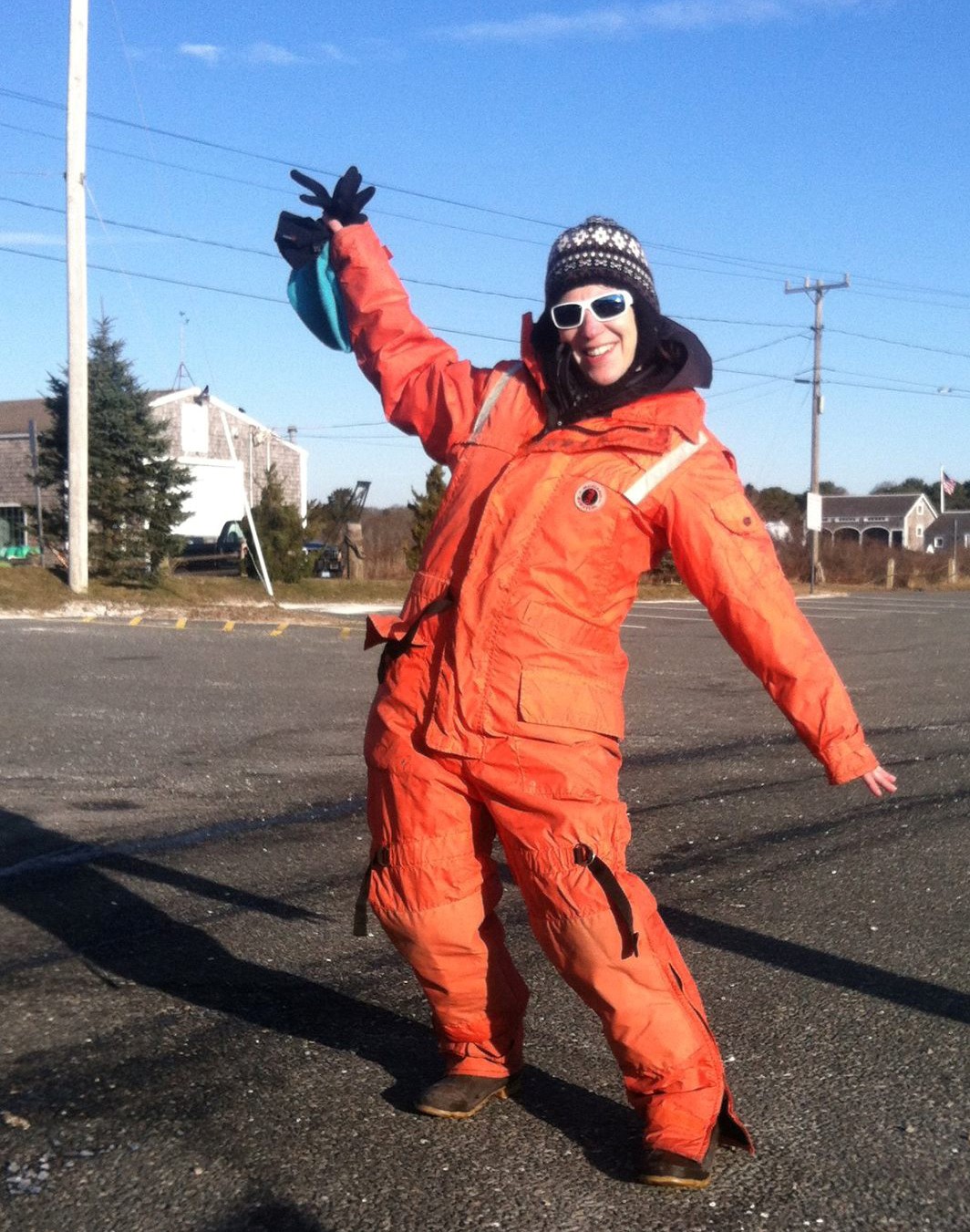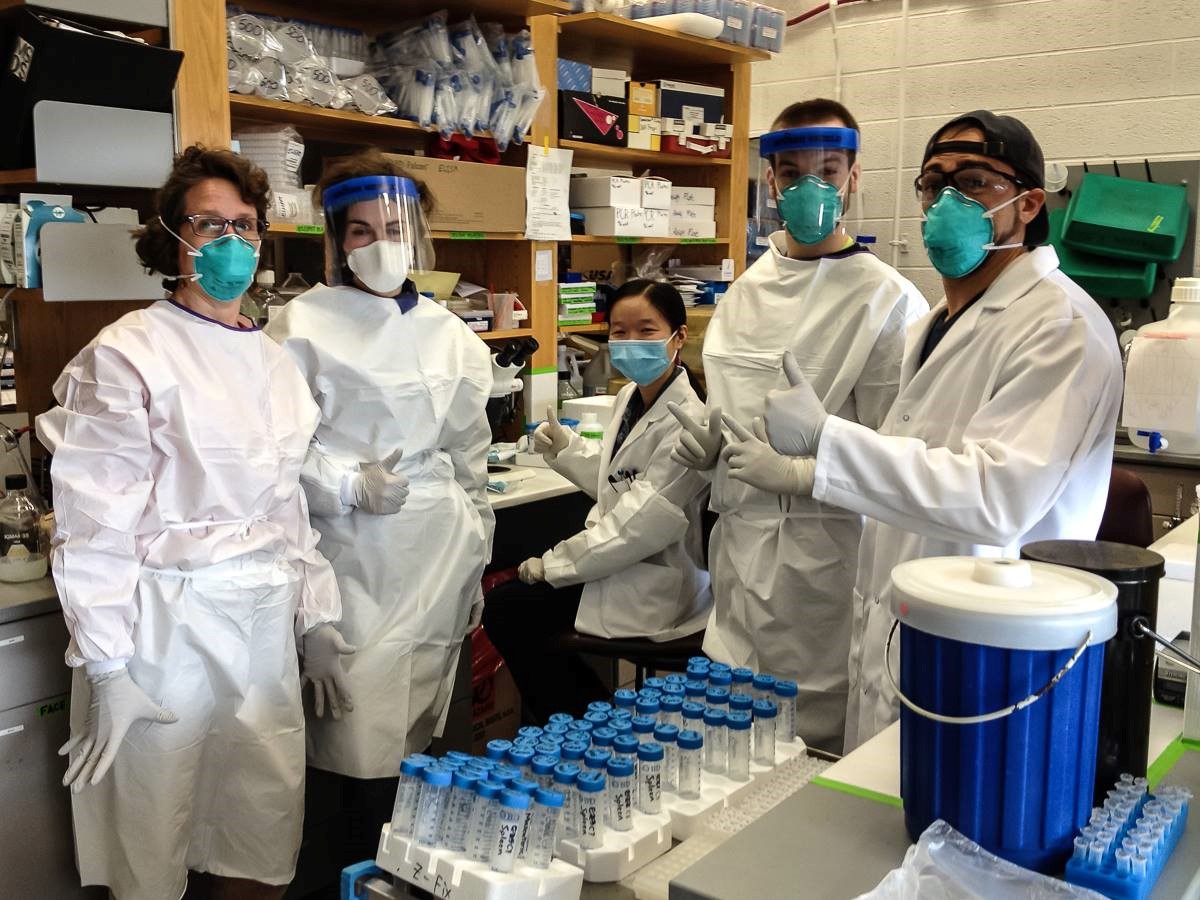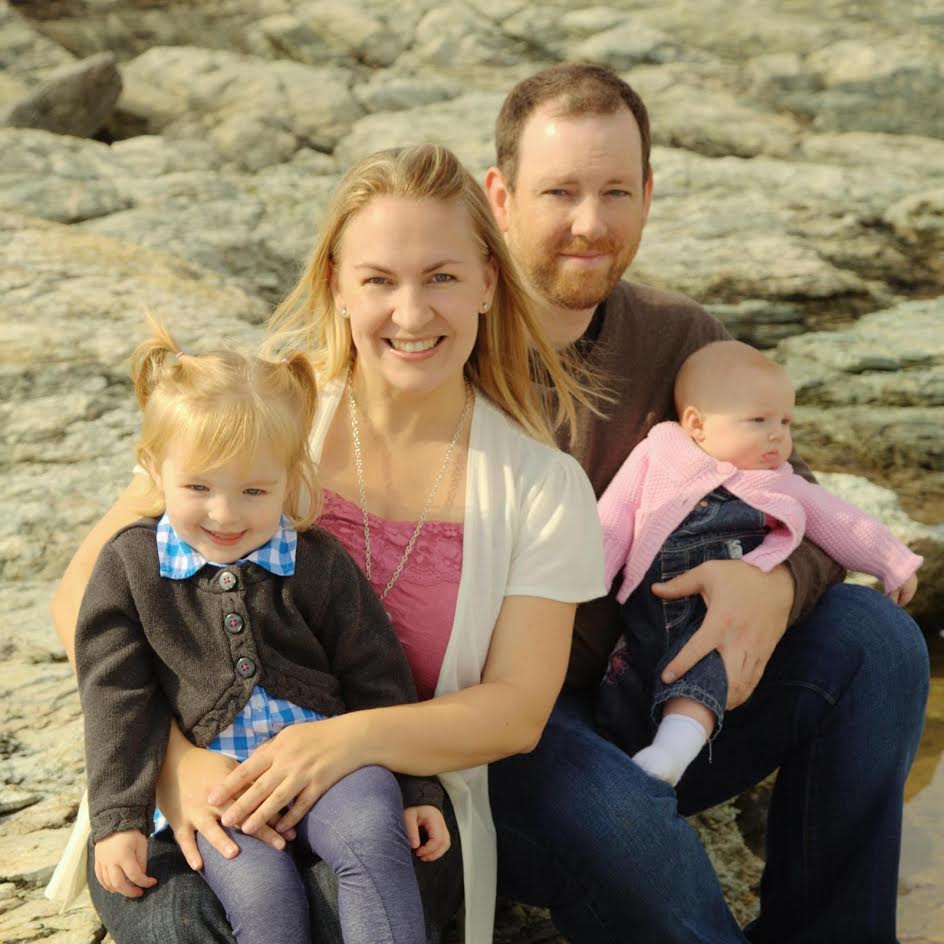
Last week, Nobel-laureate Tim Hunt delivered 37 words that set the Internet afroth with turbulent discussions regarding the current climate of sexism in the scientific community.
“Let me tell you about my trouble with girls,” he said at the World Conference of Science Journalists in South Korea. “Three things happen when they are in the lab. You fall in love with them, they fall in love with you, and when you criticize them, they cry.”
Sir Hunt’s flagrantly sexist remarks came in the wake of a controversial column published in Science Magazine, in which Dr. Alice Huang publically advised a postdoctoral fellow to “put up with” a male advisor’s blatant breast-ogling during office meetings “with good humor, if you can.” Both Hunt’s and Huang’s words have sparked outrage on social media and have highlighted the fact that women in science still face rampant sexism in the workplace. For example, many have defended Dr. Huang’s advice to her younger colleague as practical since it is generally accepted, ivory-tower street smarts to stay silent about harassment complaints. Historically, when trainees report sexual turpitudes by tenure-track advisors, it is often the unfortunate reality that it is to the professional detriment of the trainee, rather than the perpetrating faculty member. Sadly, the received wisdom has been that it might be better to put up with a little harassment than to throw your career in the toilet.
And of course there are the age-old problems that women in science receive lower salaries, are awarded less grant funding, and attain fewer promotions than their male counterparts. Studies have identified gender bias as at least one probable culprit for these problems. Add that to our country’s generally deplorable parental-leave policies combined with a professional culture that expects 60 to 80-hour workweeks, and the situation looks kind of grim for women — especially those balancing family responsibilities — hoping to be successful scientists.
And thus the question I am asked regularly: should we encourage our daughters to pursue careers in science? My answer is, and always was: absolutely.
Partly because I really do think things are getting better, and partly because we need troops to help make things better.
Are things perfect? Ha! No. Big fat nope.
Is there room for improvement? Yes. Hell to the yes.
But things are getting better, with regard to pay disparity, advancement opportunities, and the community’s increasing intolerance of sexual harassment and other forms of sexism. Women (and men!) have fought gender inequality in STEM fields for decades, and their efforts haven’t been for naught. A study published by the National Academy of Sciences reported that the percentage of women among those receiving PhDs in science and engineering increased from 31.7 percent in 1996 to 37.7 percent in 2005. From 1995 to 2003, the percentage of women among doctoral scientists and engineers who were employed full time rose from 17 to 22 percent. In addition, according to the US Department of Commerce and Education, in 2009 the gender pay gap was smaller for STEM careers (14 percent) than in non-STEM careers (21 percent). Furthermore, the overall gender wage gap has decreased. Women’s wages increased from 76.1 to 82.8 percent of men’s wages from 2000 to 2010.
Furthermore, the overall gender wage gap has decreased. Women’s wages increased from 76.1 to 82.8 percent of men’s wages from 2000 to 2010.
Less quantifiable improvements for women in STEM programs are also prevalent. In recent years, many strides have been made to provide trainees with more protections and recourses when harassment and abuse occurs. Many academic departments now have designated directors of graduate studies, and most institutions have ombudsmen and/or student liaisons to assist trainees in confronting difficult situations encountered in their studies – often anonymously. At universities across the country, numerous graduate medical sciences programs have implemented paid parental-leave and stop-the-clock policies for students who start families during their studies — policies that are veritable Godsends for those of us (read: me) blessed and/or stupid enough to give birth to or adopt children during graduate training.
In addition, increasing numbers of institutions and major publishing entities contribute to eradicating sexism in science. Shortly after Tim Hunt’s remarks were widely publicized, he was forced to retire from his position as Honorary Professor at University College London and his membership in The Royal Society (a fellowship of prominent scientists). And after many women and men expressed outrage at Dr. Huang’s Ask Alice column advice, Science Magazine retracted the article, stating, “We regret that the article had not undergone proper editorial review prior to posting. Women in science, or any other field, should never be expected to tolerate unwanted sexual attention in the workplace.”
Anecdotally, a dramatic shift in PhD programs has occurred in the past several years (at least in the life sciences), with far more female graduate students and postdoctoral fellows than male. Many of us have experienced or witnessed horrifying sexism in our fields, but (in part because so many have paved the way for progress), we do not accept sexism as par for the course — we’re following in the footsteps of our feminist foremothers: We’re showing up, working hard, and confronting gender issues in STEM fields head-on.
And also, we’re tweeting like mad.
Aside from providing fodder for so many discussions on the topic of sexism in STEM fields, Dr. Hunt’s infuriating comments sparked my now-favorite social-media hashtag: #distractinglysexy. Women in science have been posting photos of themselves digging for feces, knee-deep in whale entrails, and gowned head-to-toe in biohazard suits in order to convey that when we go to work every day, it’s to actually work; not to obfuscate the scientific method with our breasts and tears.
Dr. Wendy Puryear, a research scientist at MIT, posted the following photo with the caption, “During our next field season, we’ll make sure to segregate the girl scientists onto their own boat, now that we all know the perils of lady scientists being so #distractinglysexy.”

And Dr. Barbara Nikolajczyk, Associate Professor at Boston University, noted that the women in her research group felt particularly hot and #distractinglysexy in their personal protective equipment the day their building’s air conditioner broke:

Perhaps humorous hashtags are not the most important or effective tools for confronting gender inequality, but they are indicative of the best kind of climate change: one in which blatantly archaic, sexist speeches are barely taken seriously.
 Let me be clear: I am not saying that we have arrived. We haven’t, and the current state of affairs is unacceptable. I am saying that we are trending toward a more egalitarian workforce in STEM fields, and for many (myself included) it is deeply satisfying to be part of the ongoing efforts to elicit positive changes for women in science and society. We are doing our best to pave the way for future generations in hopes that they won’t have to question whether they need to put up with sexual harassment; they won’t have to live with the infuriating reality of an unfair wage gap; they won’t feel discouraged from pursuing a field of study for which they are passionate.
Let me be clear: I am not saying that we have arrived. We haven’t, and the current state of affairs is unacceptable. I am saying that we are trending toward a more egalitarian workforce in STEM fields, and for many (myself included) it is deeply satisfying to be part of the ongoing efforts to elicit positive changes for women in science and society. We are doing our best to pave the way for future generations in hopes that they won’t have to question whether they need to put up with sexual harassment; they won’t have to live with the infuriating reality of an unfair wage gap; they won’t feel discouraged from pursuing a field of study for which they are passionate.
I have two daughters, ages 5 and 2. They are blessed (read: cursed) with a scientist mother and a physician-scientist father. Our daughters love princesses and sparkly dresses and all-things-Elsa, but they also love observing insects, studying soil, collecting lake specimens (mostly moss and weeds) and examining them for composition and “water creatures.” They recently collected sticks and rocks in order to build a “home for dead worms.” During dinner, we talk about mechanisms of infectious disease, and they eat it up (the discussions, not their actual dinner). Kids — girls and boys — are fascinated by the natural world. I’ll be damned if I’m about to discourage them from the process of scientific discovery that I love so much.
Now, if you’ll excuse me, I have some super sexy science stuff to do.











